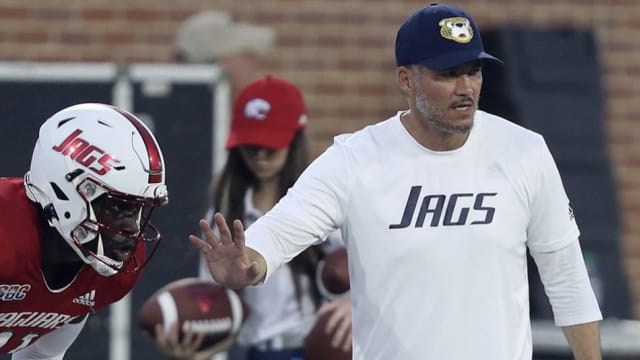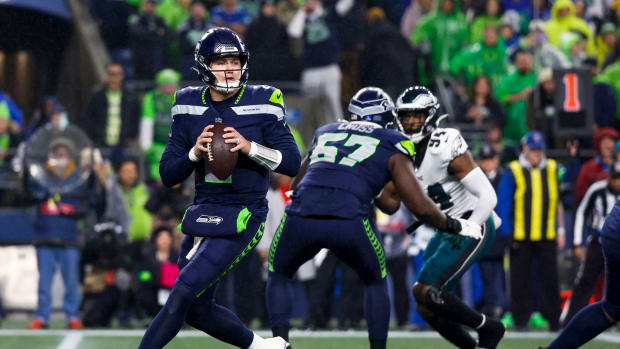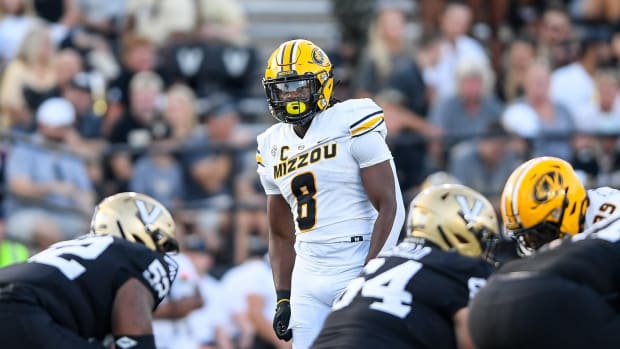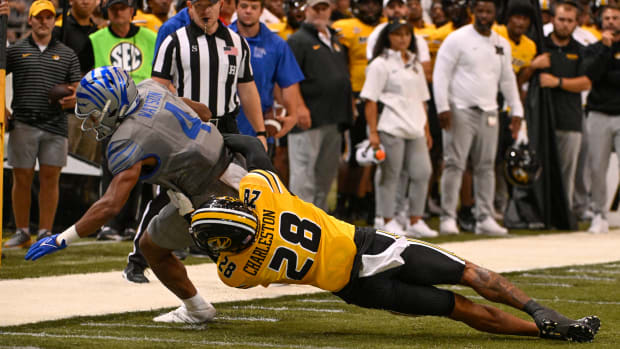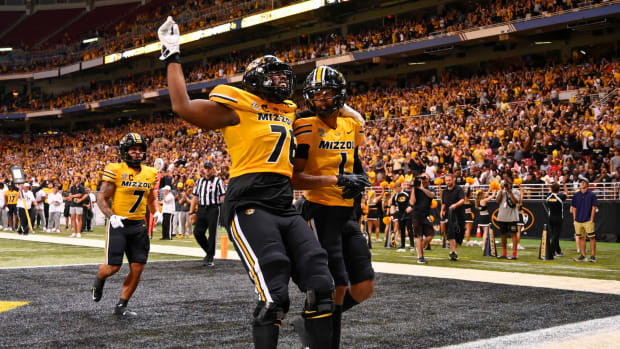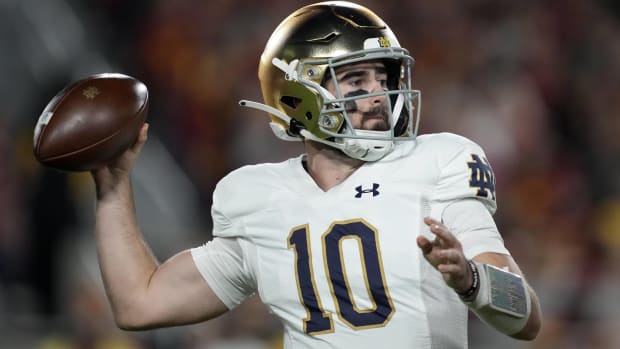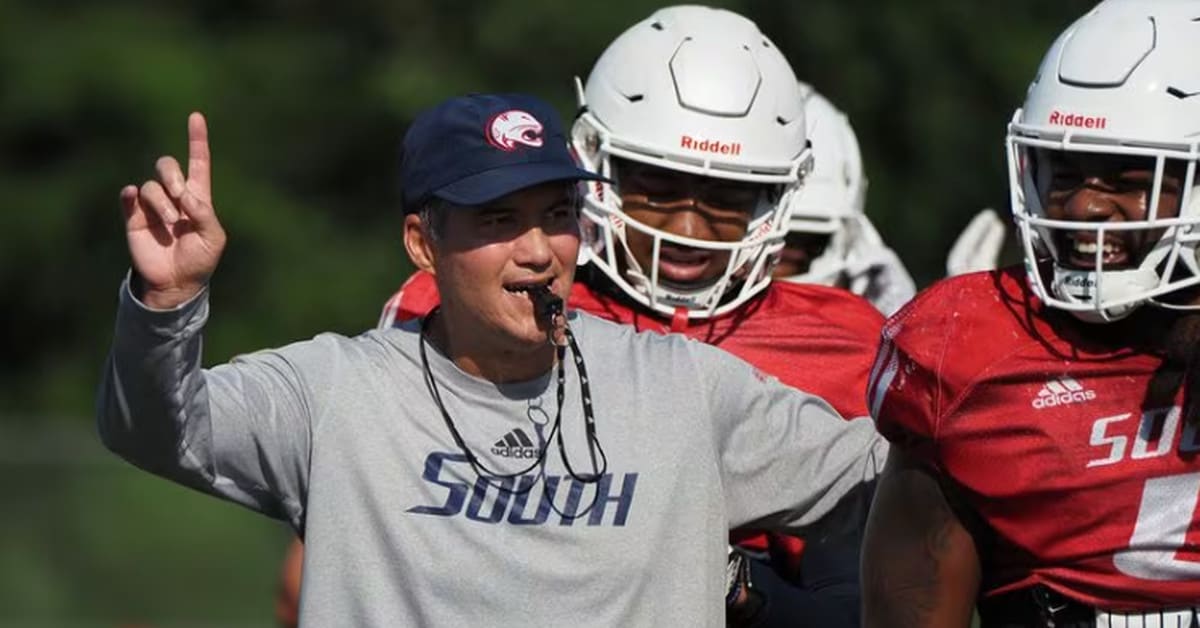
The Batoon Effect: How Missouri's New Defensive Coordinator Shot Through the Coaching Ranks

By the seasons end, the Oklahoma State Cowboys ranked 26th in the country in passing yards per game. That would pose a threat to the best of defenses, that's before you include the Doak Walker winning running back with over 1,700 yards and 21 touchdowns to the equation. So how did the Cowboys find themselves held to just seven total points at the final whistle against a South Alabama team that would finish 7-6 in the Sun Belt Conference?
Corey Batoon's first rise to NCAA FBS football would come after being hired onto the Arkansas State defensive staff as a cornerback, safety, and special teams coach. Over his two year stint with the Red Wolves, he coached three defensive backs to First Team All Sun-Belt honors. Not only did the defense find itself on top of the Sun Belt in back to back years, but it had the second-best pass defense in the conference during his first year on the job.
Leading a Red Wolves secondary into two of the best seasons in program history, Batoon more than caught the eye Hugh Freeze. So much so, that when the head coach left for Ole Miss, he gave Batoon a call to come down and be on the Rebels' staff. Batoon wouldn't coach a position again until the 2015 season, when he was promoted to assistant coach for safeties and special teams coordinator. In the meantime, Batoon was behind the scenes, putting together historic recruiting classes for the Rebels.
Batoon was promoted to the Assistant Athletics Director for Recruiting Operations in 2013 after being involved in player development his first year in Oxford. The Rebels subsequently pulled in a top-five recruiting class in the nation. He didn't stop there, contributing to the Rebels four straight top-15 classes, and helped Ole Miss crack the top-five again in 2016.
But then it was back to coaching on the field again and Batoon didn't waste the opportunity. Helping coach All-American safety Trae Elston, the Rebels defense was second in the SEC in interceptions. From there, he joined Lane Kiffin for a season at Florida Atlantic as special teams coordinator and co-defensive coordinator, and helped lead the Owls to one of the nation's top turnaround seasons. FAU finished with an 11-3 record, captured the Conference USA title.
Teams started to take notice of a trend, wherever Batoon went there was success. But next was a trip back home to Hawai'i, where the 1986 graduate of Saint Louis School in Honolulu was named defensive coordinator and safety coach.
During Batoon's first season controlling his own defense, the Rainbow Warriors put on a very respectable season despite all the extra travel. They went 8-6 and earned a bid to the Hawaii Bowl, followed by a 10-5 finish and another Hawaii Bowl win. But then Freeze called on him again, and Batoon headed off to Liberty. Coaching the safeties during his only season with the Flames, they ranked 11th nationally in total defense, as well as 12th in passing yards allowed and 23rd in interceptions. Liberty went 10-1 and defeated Coastal Carolina in the Cure Bowl.
It was enough to get him him back as a defensive coordinator, joining Kane Wommack at South Alabama. Considering that the Jaguars were coming off of a 4-7 season eight years after their move up to the FBS level, and only improved one game that first season with the new coaching staff, one might assume that things didn't go well for Batoon. Actually, it was quite the opposite as the defense had its best season yet. The Jaguars allowed the fewest rushing and total offense yards at the FBS level, and he was nominated for the Broyles Award, which goes to college football's best assistant coach.
He went on to put together back-to-back top-25 defenses in the country, in 2022 and 2023, respectively. It was a key part in South Alabama completely flipping the program trajectory in 2022, going 10-3 and winning a bowl game. Thanks to the elite defensive play, the Jaguars were trending to become a top group-of-five program, and Batoon landed another Broyles award nomination.
That brings us back to our original question, how did the Cowboys find themselves in such a hole against a team they were expected to handle with ease? A key part of the answer lies in the battle-tested defense developed by Batoon, regardless of where he is or what he is coaching. Success seems to have followed Batoon at every possible position, so it should have been no surprise that the Jaguars defense suffocated one of the premier offenses in the country for an entirety of four quarters. Even less of a surprise to anybody following Batoon or the Jaguars, that same defense would finish top-25 in the country in total defense and continue their dominant culture.
That's when the next big step in Batoon's career would come calling from another up-and-coming coach who's in the process of turning around a program. Missouri's Eliah Drinkwitz wanted him as the leader of the self-proclaimed "Death-Row Defense."
Batoon will look to build on his past successes on a higher level, a jump in competition has yet to prove an issue for the coach over the course of his career. At a school that boasts such high-level secondary talent, Batoon should quickly feel right at home teaching the young Tigers secondary, plus help how the they compete off the field as well, honing in his abilities to scout and recruit players. The 55-year-old who will reportedly draw a $1 million salary, could add another edge to a team that has found immense success in that department under Coach Drinkwitz.
Missouri hopes to reclaim the success it had under former defensive coordinator Blake Baker. Luckily for them, Batoon has shown nothing to say that he can't keep the defense at the same level, if not improve it.


